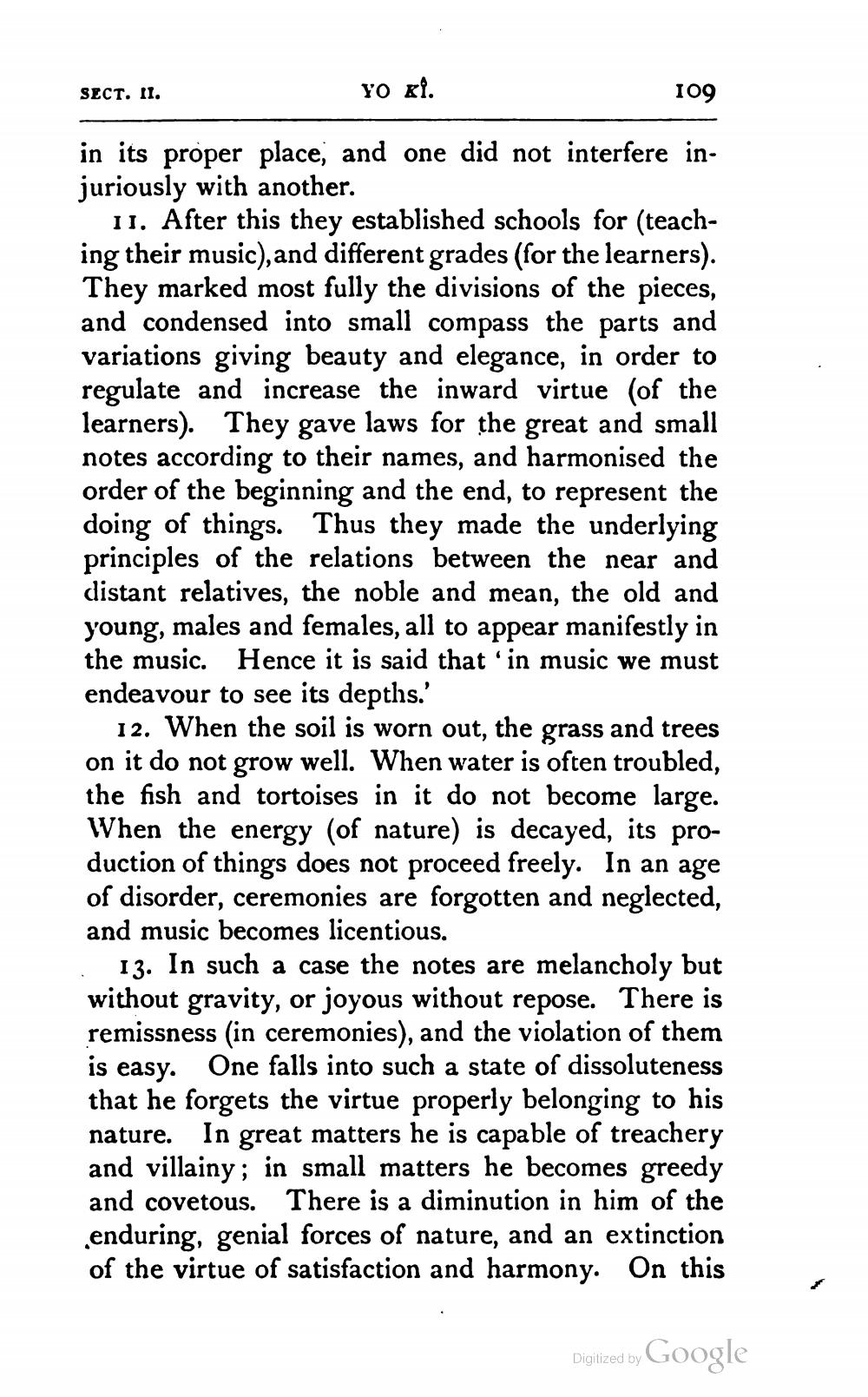________________
SECT. II.
yo ki.
109
in its proper place, and one did not interfere injuriously with another.
11. After this they established schools for (teaching their music), and different grades (for the learners). They marked most fully the divisions of the pieces, and condensed into small compass the parts and variations giving beauty and elegance, in order to regulate and increase the inward virtue (of the learners). They gave laws for the great and small notes according to their names, and harmonised the order of the beginning and the end, to represent the doing of things. Thus they made the underlying principles of the relations between the near and distant relatives, the noble and mean, the old and young, males and females, all to appear manifestly in the music. Hence it is said that 'in music we must endeavour to see its depths.'
12. When the soil is worn out, the grass and trees on it do not grow well. When water is often troubled, the fish and tortoises in it do not become large. When the energy (of nature) is decayed, its production of things does not proceed freely. In an age of disorder, ceremonies are forgotten and neglected, and music becomes licentious.
13. In such a case the notes are melancholy but without gravity, or joyous without repose. There is remissness (in ceremonies), and the violation of them is easy. One falls into such a state of dissoluteness that he forgets the virtue properly belonging to his nature. In great matters he is capable of treachery and villainy; in small matters he becomes greedy and covetous. There is a diminution in him of the enduring, genial forces of nature, and an extinction of the virtue of satisfaction and harmony. On this
Digitized by Google




